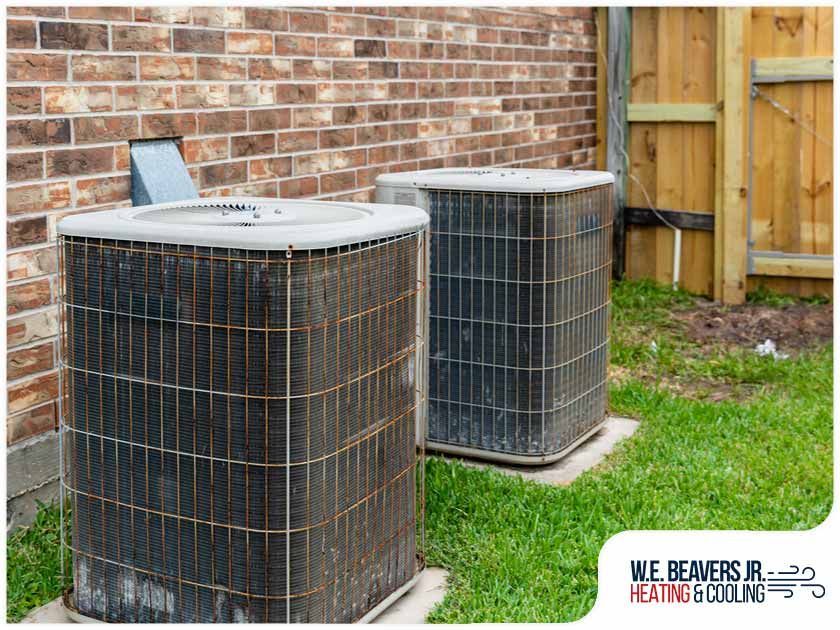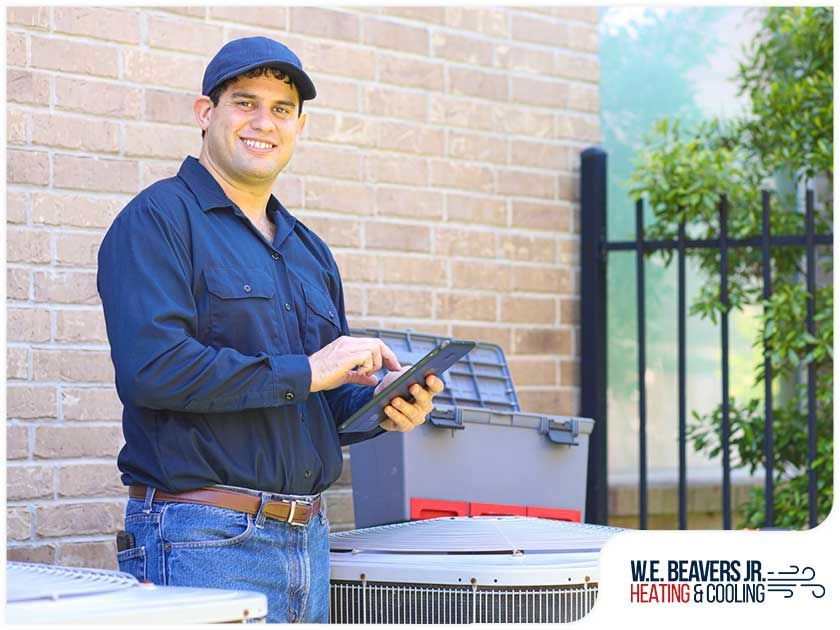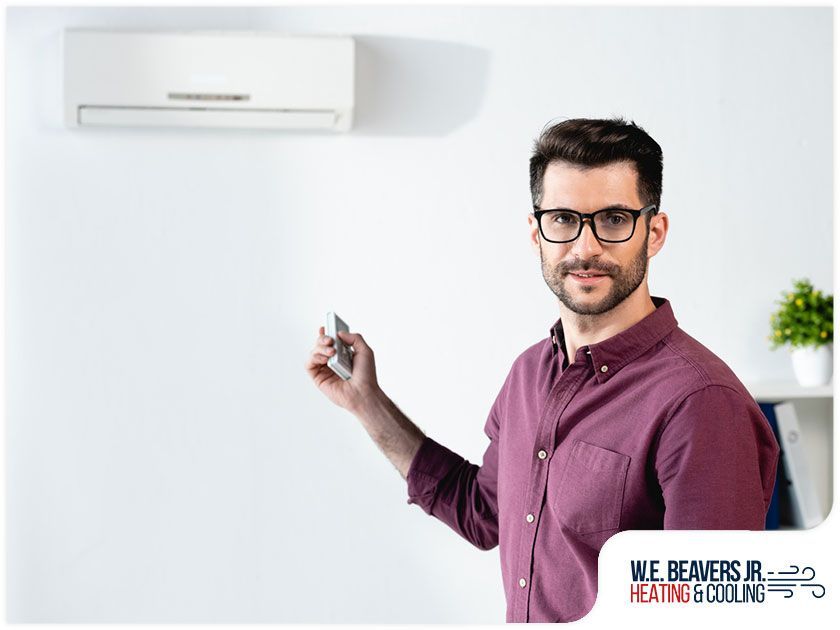Why Won’t My Outdoor AC Unit Turn On?
Why Won’t My Outdoor AC Unit Turn On?
There are multiple explanations for why an outdoor AC unit may not be running while the indoor unit seems to be functioning fine. Believe it or not, this is a common HVAC issue that many other homeowners have encountered at some point in time.

One thing to remember about a split-system air conditioner is that it won’t operate properly if one of the units isn’t working. So if the outdoor unit won’t turn on and there seems to be nothing wrong with the indoor unit, it’s likely that air is still flowing. However, cooling your home will be impossible unless the outdoor unit is fixed.
Of course, the first step to air conditioner repairs is identifying the cause of the problem. In this post, W.E. Beavers Jr. Heating & Cooling discusses the most common reasons why outdoor AC units fail to work.
Damaged fan motor. The fan motor of your outdoor unit may burn out due to wear and tear. Typically, burnt-out fan motors can be detected during a regular inspection, so make sure to have your cooling system inspected and maintained regularly. When cooling services such as maintenance and inspections are done properly and regularly, you’ll be able to fix this type of problems early and avoid more extensive and costly repairs.
Deficient power supply. If the fan assembly isn’t getting an adequate power supply, the outdoor fan will likely stop spinning. This type of issue can be difficult to diagnose on your own, so you’ll need to call up a skilled technician to find and resolve the problem.
Bad capacitors. The role of capacitors is to store the energy needed by the air conditioner’s fans to function. That said, a capacitor may be used to start the fan and keep it running. In some units, there are dual capacitors to power both the air conditioner’s fans and the compressor.
Similar to ordinary batteries, capacitors can lose their ability to store energy over time. They can be damaged by power surges, high voltage and high temperatures. When the capacitor goes bad, it won’t be able to power your air conditioner’s fan — which means the fan won’t be able to spin, so no air will come out of the vents.
If you don’t feel any air being released through the vents, you should call an AC technician to confirm the source of the problem. But if you want to test it out further before calling in an expert, you can try this:
Slide a long wooden stick through the grate that’s protecting your air conditioner’s fan. Make sure the stick is sturdy and slender enough to fit. Then, gently push one of the fan blades to get it spinning. Never use your fingers or any conductive metal to spin the fan.
If the fan takes off and continues spinning after pushing the blade, it’s likely that the start capacitor is broken. In this case, call a professional to have the capacitor replaced. An air conditioner with a bad capacitor will make the fan motor work much harder, causing the motor to burn out more quickly. Furthermore, in the case of a dual capacitor, a bad capacitor may cause the compressor to overheat, resulting in further damage to your air conditioner.
But if the fan won’t spin after pushing one of the blades, it’s possible that either the fan motor itself is damaged, the fan motor bearings are jammed or have accumulated dirt or debris has built up around the fan axle.
Issues with the contactor. The contactor is responsible for controlling the fan motor, so if the contactor develops problems, the outdoor fan might stop spinning. It may not be easy to detect contactor problems, so make sure to call an expert in HVAC repairs and installations.
Quick Troubleshooting Tips
Here are a few more tips to help you identify and solve issues with your outdoor AC unit:
Check if the unit was accidentally turned off. Sometimes the problem with your outdoor AC unit can be as simple as being accidentally turned off — which can be easily fixed simply by switching it back on. Outdoor fans usually have an on-off switch in a small box by the unit, so make sure to check this first. among other things.
Look for a tripped circuit breaker or blown fuse. A blown fuse or a tripped circuit breaker is often caused by a power surge. To check if either of these is the problem, you should look for the fuse box if you have an old home or the circuit panel if your house is newer. If you have a fuse box, you should check for a blown fuse; if you have a circuit panel, you should look for a tripped circuit breaker. In the case of a tripped circuit breaker, you can try flipping it off and then back on.
Alternatively, you can check if your air conditioner has a fuse at the safety shutoff box. You can try to replace the fuse even though there’s no sign of a blown fuse.
If any of these methods solves the problem but the issue occurs again later on, it’s possible that your air conditioner might be pulling too much electricity, overheating or short circuiting. Make sure to call an HVAC technician to take a look at the problem.
Check your thermostat settings. Make sure that your thermostat is set to “cool” and its temperature is set lower than what you think is the room’s temperature. If there’s something wrong with your thermostat and your indoor unit is still running, the indoor unit is likely to be the problem.
Schedule Your Service Today!
W.E. Beavers Jr. Heating & Cooling is a local company that provides a range of cooling and heating services. We’ve been serving local communities for more than 20 years, so you can rest assured that we have the expertise and experience to perform HVAC jobs properly. Whether you need to replace your old heating and cooling system or just need a tune-up, our fully-trained technicians can take care of all your HVAC needs. To learn more about our services or to schedule a service, you can call us at (703) 897-5505 or fill out our contact form.



